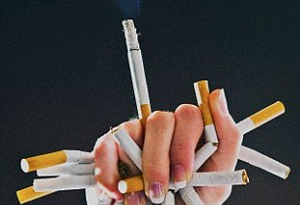Toronto, Feb 4: People who text while walking face a higher risk of an accident than those listening to music or talking on the phone, a study has found.
The study, published in the journal Injury Prevention, found that smartphone texting is linked to compromised pedestrian safety, with higher rates of 'near misses', and failure to look left and right before crossing a road.
Researchers from the University of Calgary in Canada call for a more thorough approach to exploring the impact of distracted pedestrian behaviours on crash risk.
Worldwide, around 270,000 pedestrians die every year, accounting for around a fifth of all road traffic deaths, according to the researchers.
'Pedestrian distraction' has become a recognised safety issue as more and more people use their smartphones or hand held devices while walking on the pavement and crossing roads, they said.
The researchers looked for published evidence to gauge the potential impact on road safety of hand-held or hands-free device activities.
This included talking on the phone, text messaging, browsing and listening to music.
From among 33 relevant studies, they pooled the data from 14 -- involving 872 people -- and systematically reviewed the data from another eight.
The analysis showed that listening to music wasn't associated with any heightened risk of potentially harmful pedestrian behaviours.
Talking on the phone was associated with a small increase in the time taken to start crossing the road, and slightly more missed opportunities to cross the road safely.
The researchers found that text messaging emerged as the potentially most harmful behaviour.
It was associated with significantly lower rates of looking left and right before or while crossing the road, and with moderately increased rates of collisions, and close calls with other pedestrians or vehicles, they said.
Texting also affected the time taken to cross a road, and missed opportunities to cross safely, but to a lesser extent, according to the researchers.
The review of the eight observational studies revealed that the percentage of pedestrians who were distracted ranged from 12 to 45 per cent, they said.
It also found behaviours were influenced by several factors, including gender, time of day, solo or group crossing, and walking speed.
The researchers acknowledge "a variety of study quality issues" which limit the generalisability of the findings.
"Given the ubiquity of smartphones, social media, apps, digital video and streaming music, which has infiltrated most aspects of daily life, distracted walking and street cross will be a road safety issue for the foreseeable future," the researchers noted.
"And as signage and public awareness campaigns don't seem to alter pedestrian behaviour, establishing the relationship between distracted walking behaviour and crash risk is an essential research need," they said.
 Most smokers say they want to quit and many will make a New Year’s Resolution to quit in 2014. If this is your year to quit, the American Lung Association (ALA) offers five tips to help you along the way:
Most smokers say they want to quit and many will make a New Year’s Resolution to quit in 2014. If this is your year to quit, the American Lung Association (ALA) offers five tips to help you along the way:




Comments
Add new comment